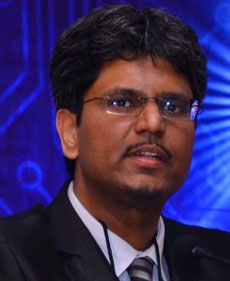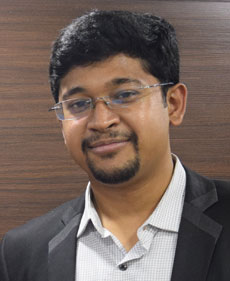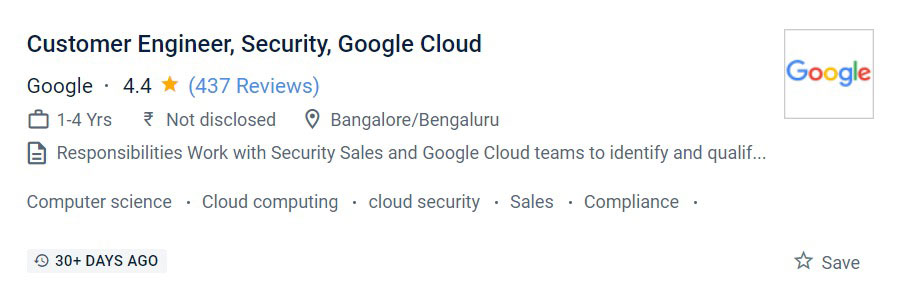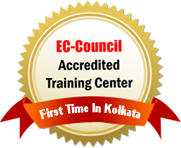
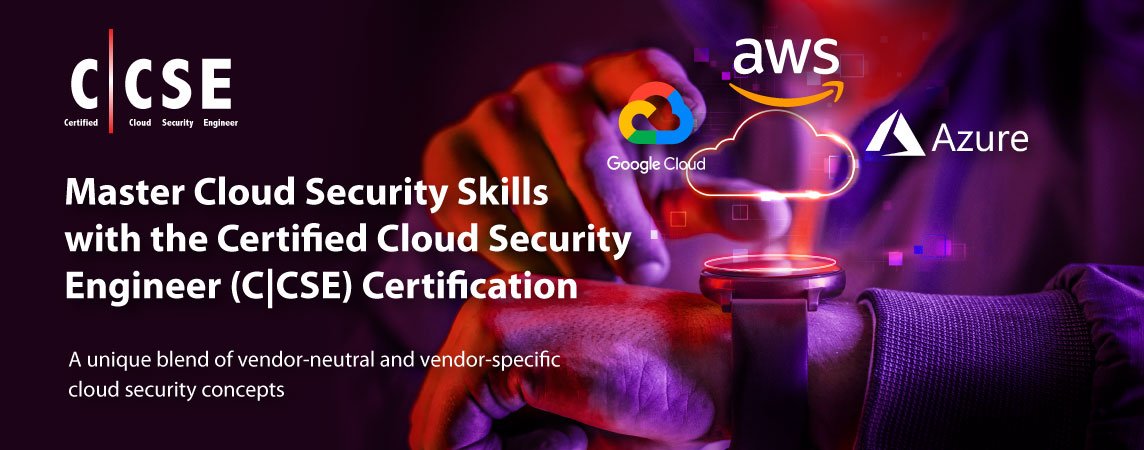
EC-Council’s Certified Cloud Security Engineer (CCSE) course is curated by cloud security professionals in association with renowned subject matter experts to deliver a mix of vendor-neutral and vendor-specific cloud security concepts. The vendor-neutral concepts focus on cloud security practices, technologies, frameworks, and principles. In contrast, the vendor-specific materials deliver the practical skills that are needed to configure specific platforms, such as Amazon Web Services (AWS), Azure, and Google Cloud Platform (GCP). This offers candidates a well-balanced mix of theoretical and practical skills. In addition, advanced topics also cover modules on securing the cloud infrastructure by implementing regulations and standards to maintain security. EC-Council’s cloud security course is mapped to the real-time job roles and responsibilities of cloud security professionals and is ideal for beginners as well as experienced cybersecurity professionals.
Why learn Certified Cloud Security Engineer (CCSE)?
CCSE Offers comprehensive knowledge and practical learning of security practices, tools, and techniques used to conjure widely used public cloud providers such as
Amazon WebServices (AWS), Azure, and Google Cloud Platform (GCP).
Demonstrates how to perform
cloud computing security audits and penetration testing
to help organizations comply with the standards, policies, procedures, and regulations governing cloud environments.
Plays an active role in
enhancing your organization's security posture
by teaching you how to plan, configure, implement, and maintain a secure cloud environment.
Why Should You Become a Certified Cloud Security Engineer (C|CSE)?
Organizations need cloud security engineers to help them build a secure cloud infrastructure, monitor vulnerabilities, and implement incidence response plans to mitigate cloud-based threats. C|CSE, with its unique blend of vendor-neutral and vendor-specific concepts, trains candidates in the fundamentals while equipping them with job-ready practical skills. With C|CSE, candidates learn:
- The fundamentals of cloud security in a vendor-neutral environment
- How to use tools and techniques to configure public cloud providers such as AWS, Azure, and GCP
- How to design and maintain a secure cloud environment
- The knowledge and skills to protect, detect, and respond to cloud network infrastructure threats
- How to design and implement business continuity and disaster recovery plans
- How to perform a cloud security audit and penetration testing
Duration
40 hours - 2 classes per week
Eligibility
- Have working knowledge in network security management
- Basic understanding of cloud computing concepts
Course Fees
Class Room Training
Rs.38,000/-
+ GST
Online Training
Rs.48,000/-Rs.38,000/-
+ GST
What You Will Get?
40 Hours
in-depth training by best faculties from cloud security industry
Study Materials
and examination voucher
CCSE
Certificate of Completion after examination and alumni status
Important Notice for International Students: The EC-Council global course fee and Exam Voucher fee will depend on the candidate's location and foreign currency exchange rate.
Who Should Earn a Cloud Security Certification?
- Network security engineers
- Cybersecurity analysts
- Network security analysts
- Cloud administrators and engineers
- Network security administrators
- Cloud analysts
- Cybersecurity engineers
- Those working in network and cloud management and operations
What You Will Learn In This Course
- Plan, implement, and execute cloud platform security for an organization.
- Evaluate and mitigate security risks, threats, and vulnerabilities in a cloud platform.
- Securely access cloud resources through identity and access management (IAM).
- Integrate best practices to secure cloud infrastructure components (network, storage and virtualization, and management).
- Evaluate and control organizational cloud network architecture by integrating various security controls the service provider offers.
- Secure organizational cloud applications by understanding the secure software development lifecycle of cloud applications and by implementing additional security controls to enhance the security of hosted cloud applications.
- Evaluate cloud storage techniques and threats on data stored in the cloud and understand how to protect cloud data from attacks.
- Design and implement a GRC framework, a cloud incident response plan, and a business continuity plan for cloud services.
- Implement and manage cloud security on various cloud platforms, such as AWS, Azure, and GCP. Utilize the security services and tools provided in Azure, AWS, and GCP to secure the organizational cloud environment.
- Understand the shared responsibility model of the service provider.
- Understand the legal implications associated with cloud computing to protect organizations.
- Evaluate various cloud security standards, compliance programs, and features offered by AWS, Azure, and GCP, and perform cloud computing security audits.
- Implement operational controls and standards to build, operate, manage, and maintain the cloud infrastructure.
- Implement various threat detection and response services provided by Azure, AWS, and GCP to identify threats to an organization’s cloud services.
- Understand and implement security for private, multi-tenant, and hybrid cloud environments.
Why CCSE is the Perfect Choice for Cloud Security Engineers

Detailed Methodological Approach and Instructor-Led Program
The CCSE program provides hands-on training in creating and implementing security policies to safeguard cloud infrastructure and applications.

Vendor-Neutral and Vendor-Specific Concepts
CCSE by EC-Council is the first certification to offer a blend of vendor-neutral and vendor-specific concepts. It covers features and services of AWS, Azure, and GCP.

Best Practices to Secure Cloud Infrastructure
The program teaches best practices for securing cloud infrastructure through evaluating cloud storage techniques and threats, configuring cloud services, designing and implementing incident response plans, and auditing cloud computing security.

SOAR for Incident Response
The course instills an understanding of security orchestration, automation, and response (SOAR), which security operations teams collect and analyze to create incident analysis reports and automate incident response in the cloud.

Governance, Risk Management, and Compliance in the Cloud
The CCSE program equips individuals with the skills to design and implement governance frameworks, models, and regulations (ISO/IEC 27017, HIPAA, and PCI DSS).

Forensic Methodologies for Cloud Infrastructure
The program teaches the tools and techniques used to perform forensics investigations on cloud platforms such as AWS, Azure, and GCP. Participants learn forensic methods and how they can be automated to identify and investigate vulnerabilities and threats.

Standards, Policies, and Legal Issues in the Cloud
The CCSE program teaches individuals how to implement standards through features, services, and tools for regulation and audits of AWS, Azure, and GCP.

Lab-Intensive Cloud Security Program
CCSE is the only certification course that provides hands-on training in a simulated environment. More than 50 complex labs train learners to tackle real-world industry-level challenges for cloud security professional roles.
Course Details
- Exam Title: Certified Cloud Security Engineer
- Exam Code: 312-40
- Number of Questions: 125
- Duration: 4 hours
- Availability: EC-Council Exam Portal
- Test Format: Multiple Choice
Hacking Tutorials
Read All Tutorials »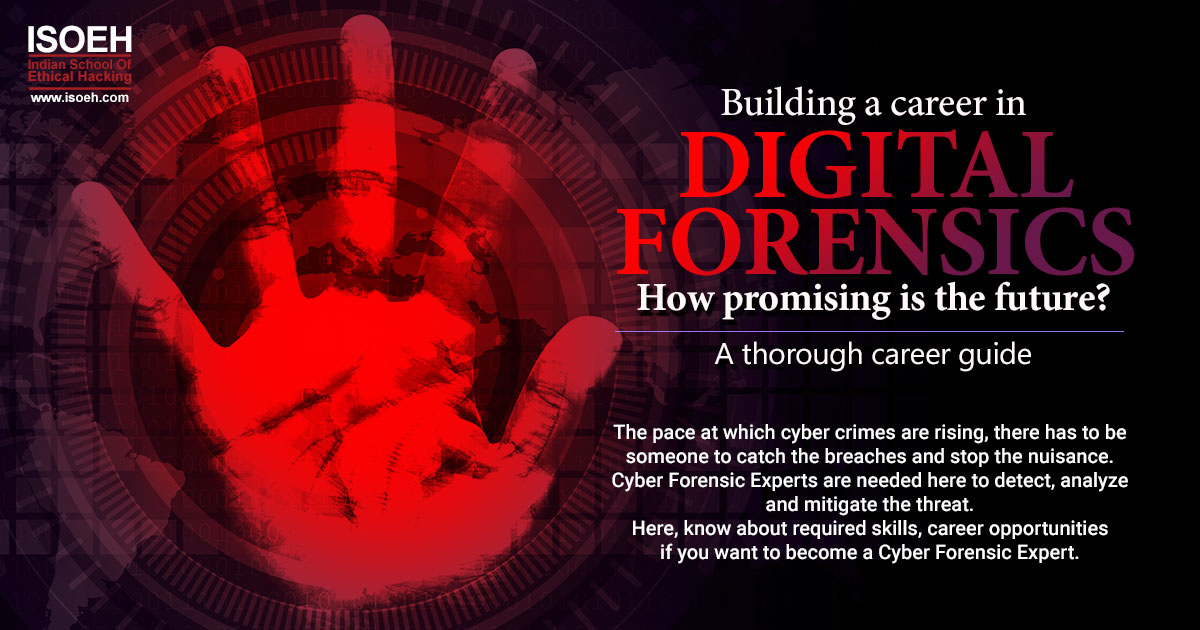
Building a career in Digital Forensic - How promising is the future? A thorough career guide
Read Details »Hacking Videos
Explore All Videos »How to Hiding Your Secret File using Steganography?
View On Youtube »Enroll Now
Fields marked with * are mandatory.
Ratings & Reviews
Job Prospects & Job Sources

Different Job Roles
Eligibility for 20+ cybersecurity job roles

Jobs Available
100000+ Jobs showcased on LinkedIn alone

Average Salary
The average salary for jobs in the U.S. that require cloud security skills is $174,181

Key USPs
Vendor-neutral and Vendor-specific cloud concepts (Azure, AWS, Google Cloud) 50+ intensive labs with real-time scenarios using multi cloud
Common Job Roles
| Cloud Security Engineer | Cloud Security Consultant |
| Cyber Cloud Security Manager | Cloud Security Architect |
| Cloud Security Manager | API Cloud Security Engineer |
| Cloud Security Technical Lead | Cloud Security Administrator |
| Cloud Security Analyst | Cloud Security Specialist |
| IT Delivery Manager | Cloud Security Engineer |
| Cloud Security and Compliance Specialist | Cloud Security Operations Lead |
| Cloud Security Practice Manager | Cloud Security Engineer - DevSecOps |
| DevSecOps Cloud Security Architect | Cloud Security/OPS |
| Cloud Security SME | Cloud Security Project Manager |
| Cloud Security/Operations Engineer | Cloud Security/Infosec/SecOps Engineer |
| Clouds DevOps Engineer |
FAQs
- Module 01: Introduction to Cloud Security
- Module 02: Platform and Infrastructure Security in the Cloud
- Module 03: Application Security in the Cloud
- Module 04: Data Security in the Cloud
- Module 05: Operation Security in the Cloud
- Module 06: Penetration Testing in the Cloud
- Module 07: Incident Detection and Response in the Cloud
- Module 08: Forensics Investigation in the Cloud
- Module 09: Business Continuity and Disaster Recovery in the Cloud
- Module 10: Governance, Risk Management, and Compliance in the Cloud
- Module 11: Standards, Policies, and Legal Issues in the Cloud
40 hours
The main focus of this course will be on both theoretical and practical parts, with hands on experience of most of the attacks, depending upon the particular student.
- Have working knowledge in network security management
- Basic understanding of cloud computing concepts
Member of:






